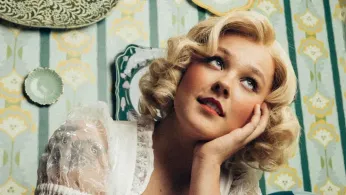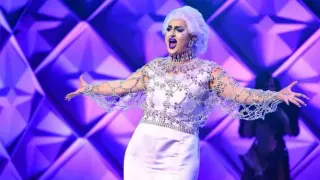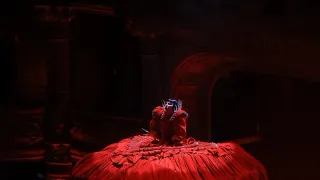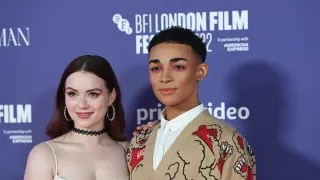
Jul 16
Kim Carnes Responds to JoJo Siwa’s ‘Bette Davis Eyes’ Cover: “A Bit Too Close” to the Original
READ TIME: 3 MIN.
JoJo Siwa, a 22-year-old pop artist and outspoken member of the LGBTQ+ community, released her highly anticipated cover of “Bette Davis Eyes” on July 11, 2025, sharing the track across streaming platforms and social media. Siwa’s version pays homage to the 1981 Kim Carnes classic, itself a Grammy-winning reimagining of the original penned by Donna Weiss and Jackie DeShannon in 1974. In her release, Siwa appeared in a look inspired by Hollywood icon Bette Davis, donning a cropped blond wig and a vibrant ensemble, and described performing the song live in London as “one of the most thrilling moments on stage”.
Shortly after the cover’s debut, Kim Carnes addressed the release in a statement to TMZ. Carnes acknowledged Siwa’s artistry and enthusiasm but expressed complex feelings about the rendition. “When I first saw my original performance placed side-by-side—and then layered on top of—a new version of ‘Bette Davis Eyes,’ I can only speak to how it initially struck me. The phrasing, the tone, even the little inflections—it all felt a bit too close,” Carnes said. She went on to emphasize her support for women uplifting one another in music, but also underlined the deeply personal nature of her connection to the song: “Our voice is one of the few things we truly own. So when it feels like your voice is being borrowed, it strikes a deeply personal chord”.
This was not Carnes’s first public reaction: leading up to the single’s release, she posted (and later deleted) a cryptic Instagram message, stating, “There is a difference between singing a song... And embodying it.... I’ve always believed authenticity is what makes music timeless”. The message, widely interpreted as a subtle critique of Siwa’s approach, further fueled discussion across fan communities.
Siwa’s cover has generated passionate debate online, with some fans celebrating her decision to revisit a song so deeply embedded in pop music history and others questioning the originality of her interpretation. The controversy has highlighted broader questions of artistic ownership, especially for LGBTQ+ artists who often draw on previous generations’ work to assert their own identities and visibility.
For many LGBTQ+ listeners, Siwa’s public embrace of her identity and her willingness to reinterpret iconic material are signs of progress in a traditionally conservative industry. Her choice to cover “Bette Davis Eyes,” a song about powerful femininity and enigmatic allure, resonates within queer communities that have long found meaning in pop culture’s subtexts and reinventions. At the same time, Carnes’s comments about authenticity and artistic voice speak to the importance of honoring the unique contributions of original creators, especially women whose voices have shaped the soundscape of pop music.
Despite the tension, both artists have called for constructive conversation and mutual respect. Carnes explicitly denounced the wave of online hate directed at both herself and Siwa, stating, “This business can be brutal, and I strongly reject the kind of hate and personal attacks I’ve seen online—whether directed at me, JoJo Siwa, or anyone else. That kind of behavior doesn’t belong in music, or anywhere.” She also acknowledged the long history of “Bette Davis Eyes” covers by other artists, reflecting on the song’s enduring impact and adaptability.
Siwa, for her part, has expressed gratitude for the opportunity to engage with such a beloved track and introduce it to younger audiences. “Performing ‘Bette Davis Eyes’ live in London was one of the most thrilling moments on stage. The crowd’s reaction was so amazing, I knew I had to release it as a single,” Siwa said in a statement.






